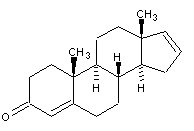Sex pheromones, the chemicals some scientists believe waft off the body to help attract sexual partners, are processed differently in the brain depending on our sexuality. Revealed: how scent of a
Ian Sample,
woman attracts lesbians
science correspondentUsing a brain scanning technique called positron emission tomography, scientists found that a potent chemical lurking in male sweat causes a rush of electrical activity in the brains of straight women and gay men, while lesbians and straight men treat it like any other common odour.
Ivanka Savic, a neuroscientist at the Stockholm Brain Institute who led the study, said the finding suggested specific brain circuits were engaged when we were exposed to chemicals we found sexually stimulating. She added that the scans did not reveal whether sexual behaviour was learned or hard-wired in our brains at birth.
In the study, three groups of 12 volunteers, including lesbians, heterosexual women and straight men, were asked to sniff a variety of odours. They included odourless air, four common scents and a chemical, known as androstadienone (AND) that is 10 times more abundant in male than female sweat and is suspected of acting as a male pheromone.
After smelling the odours, the volunteers were given brain scans that revealed which regions of their brains had the greatest increase in blood flow, a measure of how much they had been stimulated. The scans showed that after sniffing AND, a region of the brain called the anterior hypothalamus lit up in heterosexual women and gay men.
The brain scans of lesbian women and straight men showed a marked difference after sniffing the male sweat chemical, however. Brain scans revealed activity increasing in parts of the brain called the piriform cortex and amygdala, which are believed to light up when the brain processes any odour.
The researchers also found that lesbians and heterosexual men responded in the same way to a potential female pheromone called EST. Brain scans showed that clusters of neurons lit up in the brains of both groups when they smelled the odour, which were not activated in heterosexual women.
"This is the first study to show that these chemicals can activate specific brain circuits," Dr Savic said. The study appears today in the journal Proceedings of the National Academy of Sciences.

